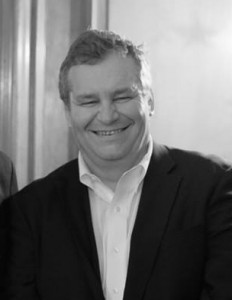From Amb. Peter Maddens, Founding President of Kupona Foundation
 In 2003, the Belgian Government honored me by appointing me Ambassador to Tanzania, a post in which I served for 5 years. My family and I had lived in Vienna, Austria before moving to Dar es Salaam – clean, obsessively well organized, with a long history. Moving to Tanzania provided us with a fundamentally transformative experience. I had lived in Kenya for a little while as a child, so I had some idea what East Africa was like. But neither my wife nor my sons had spent any time there. The climate, the poverty, the lack of social structures – but also the simple joys, the youthfulness and optimism so prevalent – helped us understand better the diverse world we live in.
In 2003, the Belgian Government honored me by appointing me Ambassador to Tanzania, a post in which I served for 5 years. My family and I had lived in Vienna, Austria before moving to Dar es Salaam – clean, obsessively well organized, with a long history. Moving to Tanzania provided us with a fundamentally transformative experience. I had lived in Kenya for a little while as a child, so I had some idea what East Africa was like. But neither my wife nor my sons had spent any time there. The climate, the poverty, the lack of social structures – but also the simple joys, the youthfulness and optimism so prevalent – helped us understand better the diverse world we live in.
Photo credit: Melanie Quinn Photography
My work in Tanzania was varied: political, commercial, consular work and also quite a bit of attention to development related issues – requesting international support for and overseeing the management of particular projects, discussions with our hosts on policy issues, helping to shape Tanzania’s role in the region at a time when tensions in the surrounding great lakes countries were high. (At one point during my post, there were half a million refugees in Tanzania.)
As Ambassador, I was a privileged observer of the achievements of a number of Belgians in Tanzania. The Operations Director of the national railway was Belgian, the man who organized secondary education in the refugee camps was a Belgian Christian Brother. The institution that changes dozens of lives every day – thousands upon thousands every year – was CCBRT in Dar es Salaam, and was also one of my “Belgian” stars because it was founded by a compatriot in 1994.
I will never forget the stories and images from my first visits to the hospital. The-5-year old boy who can go to school because he no longer needs to be his grandfather’s constant escort. The young woman who had developed a fistula (and lost her baby) during child birth, become incontinent, then built up the courage and resources to seek treatment, only to be thrown off successive weekly buses because of the discomfort she created for the other passengers. A journey to Dar es Salaam that should have taken a couple of days took a month, but the surgery she received at CCBRT was so completely life-changing to be worth it. The smile on the 9 year old who, after having been ostracized by his peers because of his clubbed foot, can finally walk and run like all his friends. It’ll take a while to develop the strength he’ll need to join them on the football field, but he’ll get there…
And that is why this is something I want to stay involved with for a long, long time. It is so simple to change a life, help a family overcome adversity, help a community grow and develop… by focusing on one person at a time.
CCBRT is expanding to now include a maternity hospital and will almost double the amount of patients it treats every year, to 20.000! Right now, the hospital is being funded by its own income (every patient contributes to his or her care), by donations from Tanzania’s development partners and by the Tanzanian government which funds a significant portion of the hospital’s staff cost. In order to enlarge the funding base, it is logical to also start exploring the potential of the pool of private donations. Hence the need for an organization like Kupona – and the fact that this allows me to stay involved in this is utterly gratifying.
My sons’ school started at 7AM. Every morning we were blessed with a short drive to the school along the Indian Ocean, during sunrise and looking east… During the time we were there, we also were fortunate to have the opportunity to see the many wonders of the country – the breathtaking beaches of Zanzibar, the wildebeest and plains of the Serengeti. But there was also the daily confrontation with poverty and the legacy of too many years of bad management. Tanzania is a country that is resource-rich – with mines and coffee plantations dotting the landscape, particularly in the northern part of the country – and relatively politically stable, but whose people, for the most part, remain heartbreakingly poor, many living on less than $2 per day. Addressing these issues in Tanzania (and in too many countries like it, sadly) is something that is done at various levels. Policy level development work – involving highly political dialogue activities and enormous sums of money and micro-level work, often by countless non-governmental organizations of every service and agenda create a complex network of activities, all of which utterly well intentioned but often insufficiently coordinated. Naturally, my position and the issues we were confronting gave me exposure to this substantial sector of Tanzanian life. Many made a significant impression – and a significant impact. Most importantly, I have come to the conclusion that the greatest impact in development work is the work that affects one person at a time. And Kupona has allowed me to do just that : focus on the individual and be part of a great cause.

